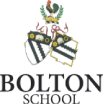Additional Information
Evening homework is set throughout the year groups and parents are encouraged to ensure that their sons have adequate working conditions for personal study at home.
Pupils in Years 7 to 11 are required to spend between one and two hours a night on homework assignments and for them, a formal timetable of subjects is arranged.
In the Sixth Form, pupils have greater flexibility with assignments normally being set by the week, allowing them to plan their own schedules. Year 12 and 13 students need to do considerable reading and research, in addition to set exercises. For this, they have private study periods allocated within their weekly timetable.
Each pupil is given a study planner to help him organise his work. Parents are encouraged to use the relevant space in the planner to communicate with staff. Form teachers regularly check these planners in order to monitor pupils' organisation.
Pupils’ progress is monitored by subject teachers, Form teachers and Heads of Year.
Parents receive two written reports a year and are invited to an annual Parents’ Evening. Parents also have constant access to their son’s academic progress online through the School’s ePortal record system and can contact their son’s Form teacher if they have any concerns.
Examinations:
| Examination Type | Year Group(s) | When they take place |
|---|---|---|
| Internal examinations | Years 7-10 | Early June |
| GCSE mock examinations | Year 11 | Early January |
| GCSE examination period | Year 11 | May/June |
| A Level (AS & A2) examinations | Years 12-13 | January and the summer term |
Our Learning Support Department consists of experienced staff who have significant expertise in supporting high-achieving pupils with Specific Learning Difficulties such as dyslexia, dyspraxia/developmental co-ordination disorder, working memory, cognitive and sensory processing issues, autism, anxiety, attention deficit hyperactivity disorder and visual, hearing or physical impairments. Provision for pupils for whom English is an additional language (EAL) is also available.
We conduct our admissions on a fair and non-discriminatory basis and enjoy strong working relationships with our pupils and their parents, supporting boys from the point at which they are diagnosed until they complete their Bolton School careers.
We have a welcoming, friendly and well-resourced space. There is a large, bright classroom for teaching and learning, and a specially designed 1-1 room for pupils to use when they need to unwind so that the well-being of all of our pupils may be supported.
We aim to tailor our support to the needs of pupils who are highly able to access an academic curriculum, but who may need extra help to fulfil their potential. We can assist pupils in various ways:
- Specialist literacy lessons
- Handwriting advice and touch-typing
- Lunchtime workshops on a wide range of skills: study skills, revision, exam techniques, note-taking, supporting memory, time management and organisation
- Individual mentoring sessions to support an identified educational need
- GCSE or A Level support sessions to consolidate learning.
In this way, we aim to establish our pupils as active, resilient, compassionate and life-long learners.
There is close collaboration with our Admissions department to identify pupils with a diagnosis and who require additional support when they arrive. If a pupil was awarded any concessions upon entry we ask for an updated assessment with our appointed Specialist Assessor from Year 9 onwards, as stipulated by our examination awarding body. The costs of assessments are covered by parents.
All pupils are monitored from the year of entry and assessed using a screener. These assessments are used to inform teachers on best support practice for the individual, and determine whether further assessment is required to apply for Access Arrangements or examination concessions, which may be suitable.
We monitor every pupil, and regular liaisons between Heads of Year, Form Tutors and subject teachers ensure that any pupil who requires help receives the necessary intervention, through our structured referral process. Regular communications with the Pastoral Support team ensure a holistic approach to pupil well-being is maintained at all times. A minority of pupils who require additional support often drop their second or third language, freeing timetabled periods in which they attend Directed Study Support lessons. Here they can focus on study skills, coursework, assignments or revision.
We are proud that our SEND pupils go out to represent Bolton School at many of the top universities and across all disciplines.
Internet Safety is covered as a topic in both ICT and PSHE lessons and boys learn to make intelligent decisions for themselves but if they have any questions or if parents have concerns they are encouraged to contact ICT teachers, Form Tutors or our Deputy Head (Academic); all can be reached via 01204 840201.
The below links provide a gateway to useful information for both pupils and parents.
Within the curriculum structure, the responsibility for devising schemes of work lies with our Heads of Departments. A department's handbook will often describe the particular departmental emphasis and schemes of work will guide the day-to-day work of colleagues. Departments are encouraged to have an agenda item on teaching and learning at their planned meetings. The nature of classroom teaching is guided by our Teaching and Learning Policy. The work of the Heads of Department is managed by the Academic Assistant Head.
The curriculum content and delivery is managed by the Academic Assistant Head, who oversees the team of Heads of Department who meet each half term to discuss issues affecting the curriculum and teaching and learning. The Learning Development Group, chaired by the Director of Learning, is a forum for discussing teaching and learning initiatives, which are fed back to staff on INSET days and inform the agenda of Heads of Department meetings.


